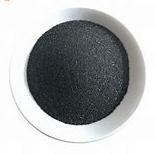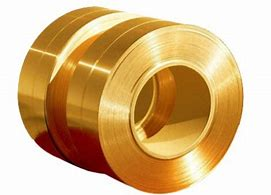1. Introduction
In a major development just 24 hours ago, the U.S. Department of Commerce announced new export controls on high-purity titanium powder used in defense-related additive manufacturing, citing national security concerns. This move has sent ripples through the global supply chain, highlighting just how strategically vital titanium powder has become in modern industry.

Titanium powder—often referred to as Ti powder—is far more than just a fine metal dust. It’s a high-performance material enabling breakthroughs in aerospace, medical implants, and next-gen 3D printing. Whether you’re an engineer, a procurement specialist, or just curious about advanced materials, understanding titanium powder’s properties, types, and market dynamics is essential.
2. What Is Titanium Powder?
Titanium powder is a finely divided form of titanium metal, typically produced through processes like gas atomization, plasma rotating electrode (PREP), or the hydride-dehydride (HDH) method. Unlike bulk titanium, which is known for its strength-to-weight ratio and corrosion resistance, titanium powder unlocks new possibilities—especially in additive manufacturing.
It’s important to distinguish titanium powder from TiO2 powder (titanium dioxide), a white pigment used in paints, sunscreens, and food. While both contain titanium, TiO2 powder is a ceramic compound, not a metal, and serves entirely different purposes.
3. Types of Titanium Powder
3.1 Pure Titanium Powder
Pure titanium powder (Grade 1 or 2) is used where biocompatibility and corrosion resistance are critical—think dental implants or chemical processing equipment. It’s less strong than alloys but easier to process in certain 3D printing applications.
3.2 Titanium Alloy Powder

The most common alloy is Ti6Al4V powder (also called Ti64 powder), which combines titanium with 6% aluminum and 4% vanadium. This alloy dominates aerospace and medical sectors due to its excellent strength, fatigue resistance, and weldability.
Other specialty powders include:
- Titanium nitride powder – used for hard coatings and wear resistance
- Titanium carbide powder – valued in cutting tools and cermets
- Titanium diboride (TiB2) powder and titanium boride powder – used in composites and armor
- TiH2 powder – a hydrogenated form used in pyrotechnics and as a foaming agent
- Spherical titanium powder – essential for smooth flow in laser powder bed fusion 3D printers
3.3 Nano and Specialty Forms
Titanium nanopowder and TiO2 nano powder are used in catalysis, sensors, and advanced coatings. Meanwhile, titanium flash powder (a pyrotechnic mix) and burnt titanium powder coat are niche but notable in special effects and surface finishing.
4. Titanium Powder for 3D Printing
Additive manufacturing has revolutionized how titanium is used. Titanium powder for 3D printing must meet strict standards: high sphericity, low oxygen content, and consistent particle size (typically 15–45 microns). Gas atomized titanium powder is preferred for its spherical shape and flowability.
Key applications include:

- Lightweight aerospace components
- Custom orthopedic and dental implants
- High-performance automotive parts
The titanium powder for 3D printing price varies widely based on purity, alloy type, and certification. Ti6Al4V powder price typically ranges from $300 to $600 per kg, while pure titanium powder may cost slightly less.
5. Pricing and Market Trends
Titanium powder price per kg depends on several factors: production method, particle morphology, alloy composition, and order volume. On average:
- Pure titanium powder: $200–$400/kg
- Ti64 powder: $300–$600/kg
- Spherical titanium powder: premium pricing due to processing costs
The titanium metal powder price has been rising due to increased demand from defense and medical sectors, coupled with supply chain constraints. For those looking to buy titanium powder, it’s crucial to work with a reputable titanium powder supplier who provides material certifications and traceability.
6. Related Metal Powders: Molybdenum and Tungsten
While titanium dominates lightweight applications, molybdenum powder and tungsten powder serve high-temperature and high-density roles.
Molybdenum metal powder (often called moly powder) is used in furnace components, electronics, and as an alloying agent. Variants like molybdenum disulfide powder (MoS2 powder) act as dry lubricants, while T-ZM powder offers enhanced strength. Molybdenum powder price typically ranges from $50–$150/kg depending on purity.
Tungsten powder, known for its extreme density (19.25 g/cm³) and melting point, is essential in radiation shielding, filaments, and wear-resistant parts. Tungsten carbide powder is even harder and widely used in cutting tools. Global Tungsten & Powders Corporation and other major players supply spherical tungsten powder and fused tungsten carbide powder globally. Tungsten powder price per kg can exceed $50 for pure grades.
7. Where to Buy and Key Suppliers
When you’re ready to buy titanium powder or related materials, look for certified international titanium powder suppliers with ISO and aerospace accreditations. Reputable vendors offer titanium powder for sale in various grades, including HDH titanium powder for cost-sensitive applications and gas atomized powder for high-end 3D printing.
Always verify specifications like oxygen content, particle size distribution, and Hall flow rate—especially for titanium 3d printing powder. Beware of misleading terms like ‘titanium coated diamond powder’ unless you’re sourcing for specialized composites.
8. Conclusion
From life-saving implants to jet engines, titanium powder is a cornerstone of modern advanced manufacturing. Understanding the differences between pure titanium powder, Ti6Al4V powder, and specialty variants—and knowing current titanium powder cost trends—empowers smarter sourcing and innovation. As additive manufacturing grows, so too will demand for high-quality, spherical, and certified titanium metal powder. Whether you’re comparing titanium powder vs. molybdenum powder or evaluating 3d printing titanium powder price, staying informed is your best asset.
Our Website founded on October 17, 2012, is a high-tech enterprise committed to the research and development, production, processing, sales and technical services of ceramic relative materials such as Titanium. Our products includes but not limited to Boron Carbide Ceramic Products, Boron Nitride Ceramic Products, Silicon Carbide Ceramic Products, Silicon Nitride Ceramic Products, Zirconium Dioxide Ceramic Products, etc. If you are interested, please feel free to contact us.
